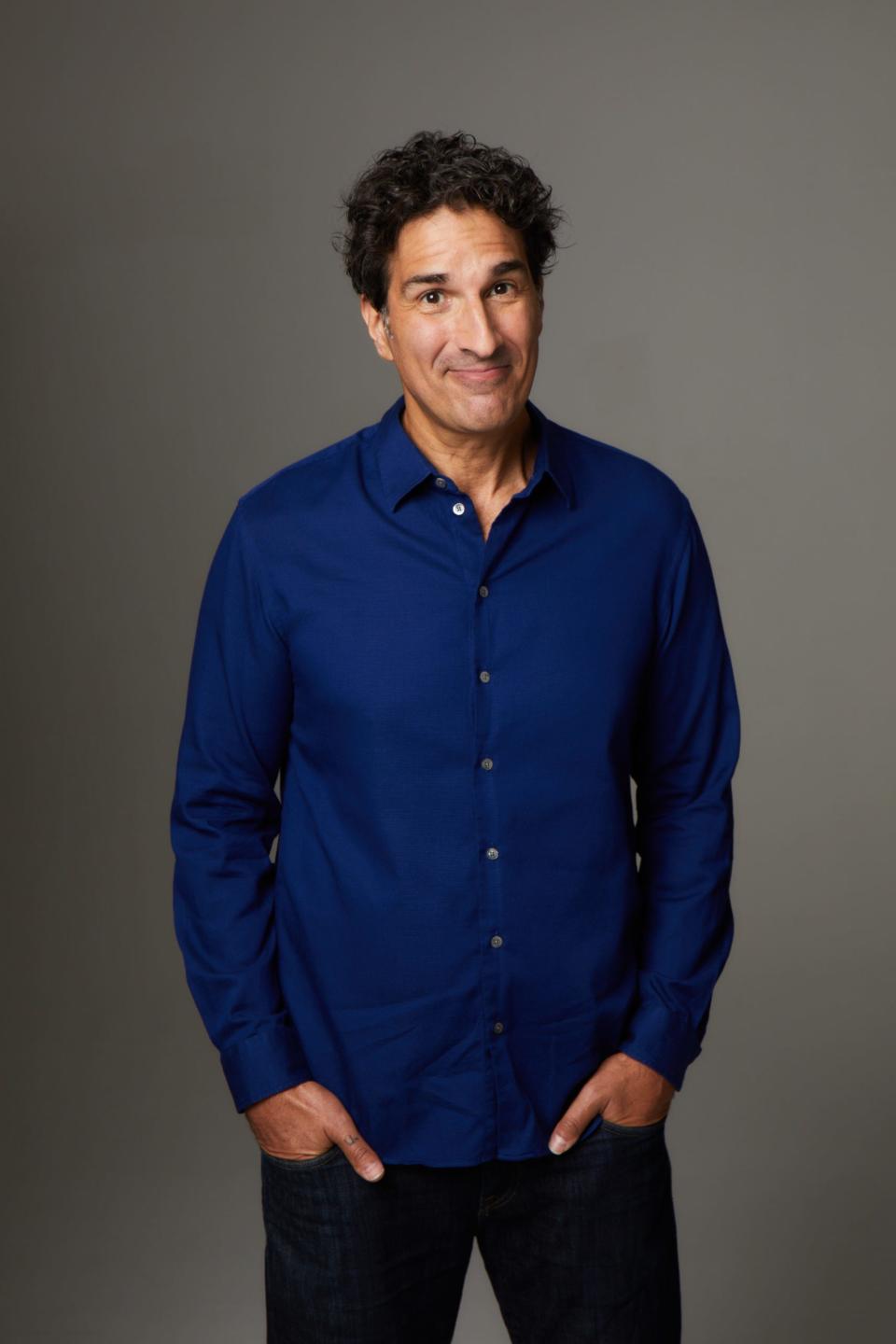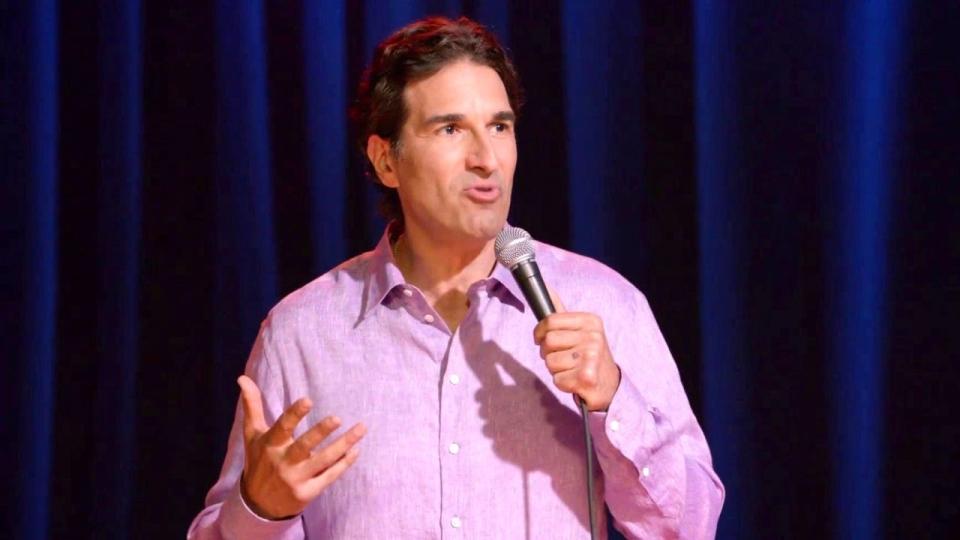Standup comic shows why laughter is best medicine when battling clinical depression
- Oops!Something went wrong.Please try again later.
Gary Gulman has spent decades in the entertainment world.
Writer, actor, standup comedian — he’s done it all.
But it’s only been in the last few years that he has leaned into using his lifelong myriad mental-health challenges for on-stage material.
In his 2019 HBO standup special, “The Great Depresh,” Gulman described himself as a “big, sensitive, soft” kid who suffered in silence.
Back in his Massachusetts childhood years of the 1970s-80s, the 53-year-old Gulman says there were but two choices for “antidepressants”: A quick command to “snap out of it!” and/or the always-supportive query “what have you got to be depressed about?”

And this weekend, Gulman will be speaking in West Palm Beach as part of Fred & Gladys Alpert Jewish Family Service’s annual No Excuse for Abuse evening.
“This will be our agency’s 50th anniversary celebration and 20th annual No Excuse for Abuse fundraising event,” says Marc Hopin, CEO of Alpert Jewish Family Services. "This event and the guests we feature continue to both educate and inspire all those who participate."

The event, which will illustrate five decades of Alpert Jewish Family Service’s ongoing commitment to excellence in human service delivery, domestic abuse prevention, mental-health support, suicide awareness and more, is set for 6 p.m. Sunday at the Kravis Center for the Performing Arts in West Palm Beach.
Using struggles for comedic material
It wasn’t until 2018, a year before the release of “The Great Depresh” that Gulman started speaking openly about his struggles.
“I’m comfortable talking about it now because I’ve come out the other side,” he admits.
But that wasn’t always the case.
As a 6-foot-6, 255-pound 17-year-old, Gulman was forced into football his junior year of high school and later recruited to play at Boston College, where he struggled with the irony of it all.
“They loved to hit,” he says. “I loved to read.” He also jokes he still had a “blanky” at the time, and still does to this day.

After three weeks on his college team, he knew football wasn’t right for him.
And for the first time decided to seek help for his struggle with depression.
He went through therapy and took antidepressants — “on and on” he jokes — for the next 30 years. Sometimes the drugs worked, and sometimes they didn’t.
“I was convinced for a long time that I wouldn’t get better,” says Gulman.
Regardless, Gulman soldiered on, despite the potential effects of the drugs.
“The side effects of the drugs don’t worry me,” he says, naming dry mouth, hair loss, blurred vision, impotence and diarrhea as some of the potential ones.
But in Gulman’s cost-benefit analysis he dryly observes that “the side effects of depression” — the main one, of course, being death — “do concern me.”
Debilitating depression
In 2017, the depression became so debilitating that Gulman stopped working and performing and spent three weeks in a psychiatric ward.
He continued to tell no one.
For a while, he admits, he feared getting better was the enemy of comedy.
And that if he got well, he would no longer be funny.
Gulman later realized quite the opposite was true: “I started to incrementally improve and part of it was getting out of the house.”
According to the National Institutes of Health, interaction with others increases the level of serotonin and dopamine in your brain. After reconnecting with friends, Gulman started to exercise, eat more healthfully and periodically do a little standup comedy.
He even started to open up about his depression in his shows.
“I got such good feedback from people after a show that I quickly realized if you are suffering from mental illness, I promise you, you are not alone.”
But in his trademark style he’s quick to add: “Oh, I’m sorry, you are alone. You are alone, but only because you can’t leave the house today. But you should. It will help — or at the very least distract you.”
Today, Gulman continues to share his journey — which is at times both hilarious and inspiring — with anyone who will listen.
Last September, Flatiron Books published his memoir “Misfit: Growing Up Awkward in the '80s.”
In the book he shares often-funny, often-poignant stories from his school-age years, interspersed with anecdotes about how the adult version of himself has both learned from, and yet still repeated, his lifelong patterns related to his mental health struggles.
His latest special, “Born on Third Base,” debuted in December on the streaming platform MAX. In this one, Gulman offers insights and humor on a range of topics, including childhood experiences with free school lunch programs, questionable dental care, and his eccentric, financially challenged Jewish-American family.
“There is hope,” says Gulman. “I was ready to give up so many times. I’m so glad I stuck around for this. I am so grateful.”
If You Go
What: Fred & Gladys Alpert Jewish Family Service’s 20th annual No Excuse for Abuse
When: 6 p.m. Sunday
Where: Cohen Pavilion, Kravis Center for the Performing Arts, 701 Okeechobee Blvd., West Palm Beach
Admission: $250
Information: Visit AlpertJFS.org or call 561-684-1991
This article originally appeared on Palm Beach Post: Laughter is best mental health medicine for ‘Great Depresh’ comic

